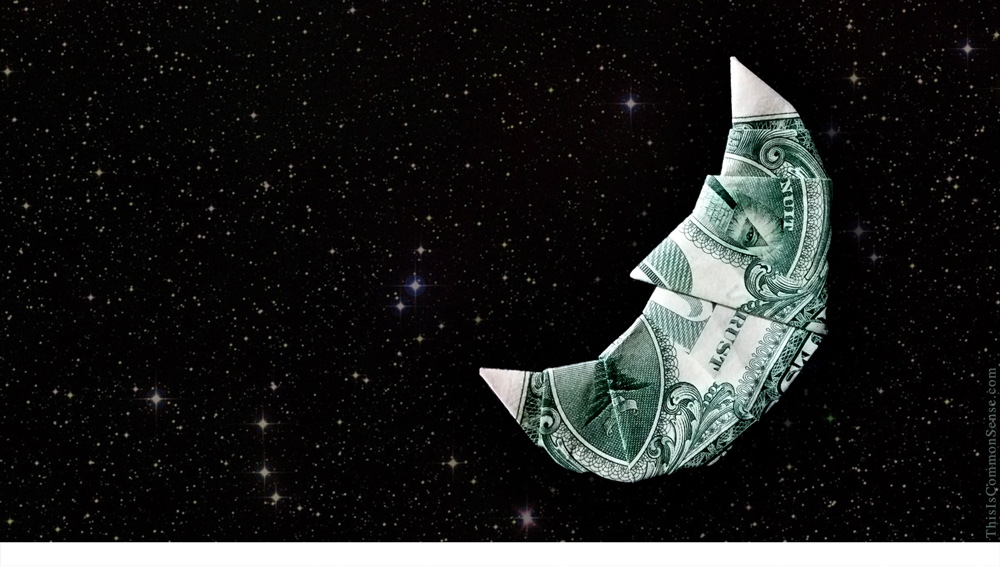“If we can put a man on the moon,” went the old 1970s saw, we can do … well, fill in the blank.
Anything!
Man, can that “anything” get really expensive. And when promoters of big government drive the program, anything quickly serves as a first-stage rocket to everything.
During the 2016 campaign, a Democratic Party activist knocked on my door to express confidence that Democrats would provide greater healthcare benefits. “Can we afford that?” I asked.
The question caught her off-guard, but after reflecting on the affordability for a brief moment on my step, she decided, what the heck, surely the great “we” can swing it.
Vermont Senator Bernie Sanders, the conscience of the Democratic Party (that he refuses to join), likewise ponders healthcare. Sans cost, again, focusing exclusively on bestowing benefits.
Sanders has introduced legislation mandating that the federal government provide Medicare for All.
Fortunately, the folks at the Mercatus Center at George Mason University are not so arithmetic-averse, calculating the price tag for the socialist senator’s bill to be a whopping $32.6 trillion (with a “t”) over ten years.
In fiscal 2019, the U.S. Government plans to spend $4.4 trillion, borrowing a trillion dollars of that to keep the federal spigots spewing cash. So, Bernie suggests nearly doubling annual spending, placing a giant $3.3 trillion cherry on top of the current fiscal pig-out.
And who in Washington has any credibility left to argue against the socialist urging evermore deficit spending on top of massive debt and gargantuan liabilities?
President Trump? Republicans in Congress? The very architects of annual trillion-dollar deficits for the foreseeable future?
That “lunacy” refers to the moon? Mere coincidence.
This is Common Sense. I’m Paul Jacob.


3 replies on “It’s Only Money”
My fiscal common sense informs me that the $3.3 Trillion with be spent on health care regardless of how it is paid — individually, private insurance, actual voluntary charity or via a governmental program.
My concern, therefore, is not with the cost of medical services but that my previous life experience has taught me that the most ineffective and expensive manner by with any goods or services can be marginally provided is via a government program. I would suspect that the cost through a government program significantly underestimated, not due to the cost of the goods and services, but rather the exponentially increase in overheads.
To reign in the cost of healthcare there should be a requirement of immediate payment for it by the individual, allowing the individual to then seek reimbursement from their insurance or program if any, i.e. no third party direct payments. That would put the price signal back into the equation causing, I suspect, some significant reactions.
I’ve stopped worrying about the growing federal debt and ballooning federal budget. My representatives consider me cold and uncaring, so why bother? Eventually we will run out of everyone’s money (that includes China) and our system will collapse and the world will have to get along without us.
As for government sponsored health care, do the people of this country realize how many people earn a living by dispensing health care? My doctor spent years in college, med school, and residency. He provides a service and he has every right to earn a living. So do the nurses, lab technicians, orderlies and the countless others who play a part in our health care system.
I do not begrudge any in the medical services sector from earning a living and being compensated for their investment and skills, I would simply like to have them back in a competitive, free and open market.
As for your comment about the unsustainable deficit spending, that is another matter and the reason I always, when I find myself sitting at the bar put one of their drinks on my Mastercard, and when they start enjoying it, explain what we (as their government) have already put on theirs and will not be around to help pay off. That is great fun and I hope has change some of their thought patterns.